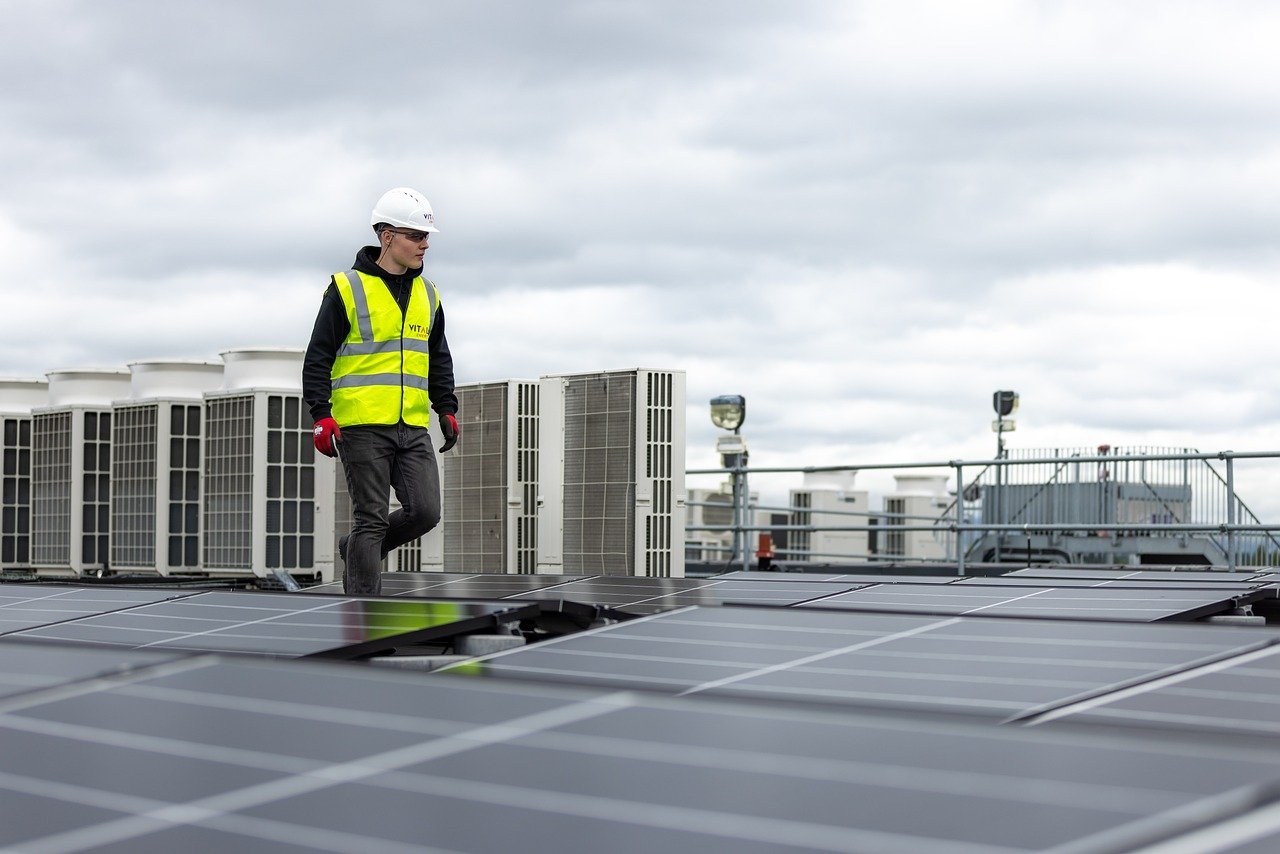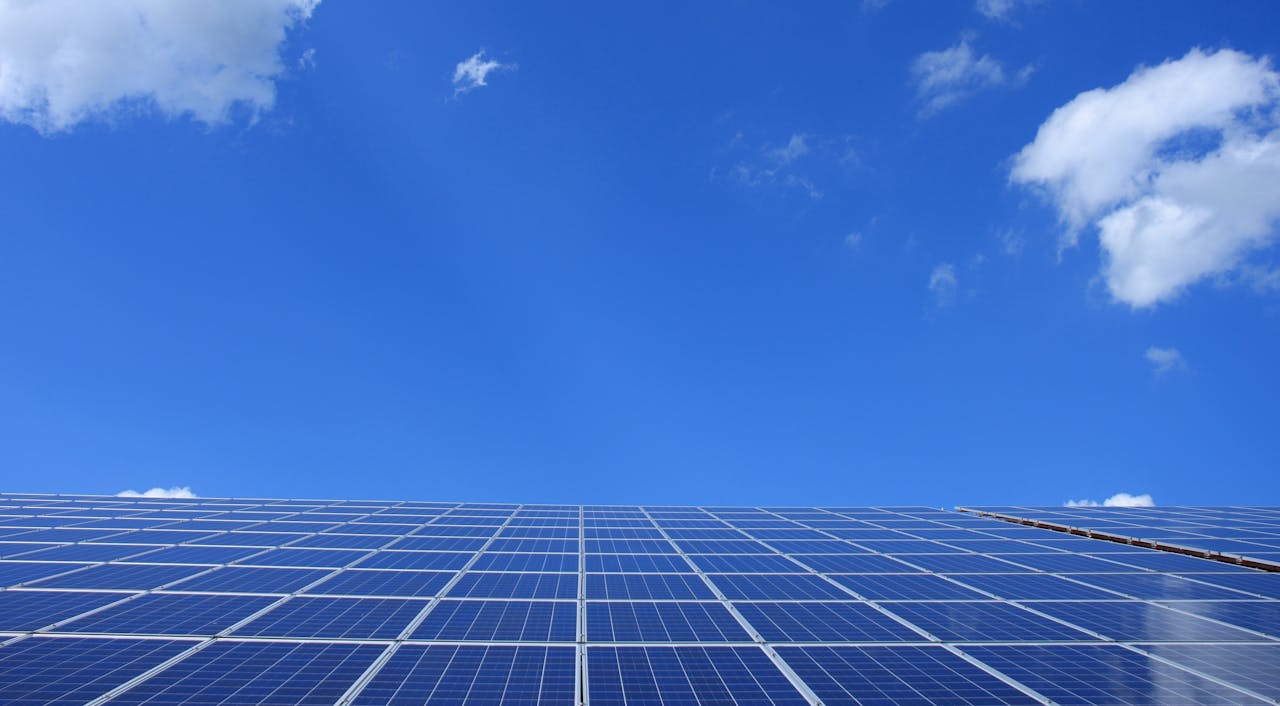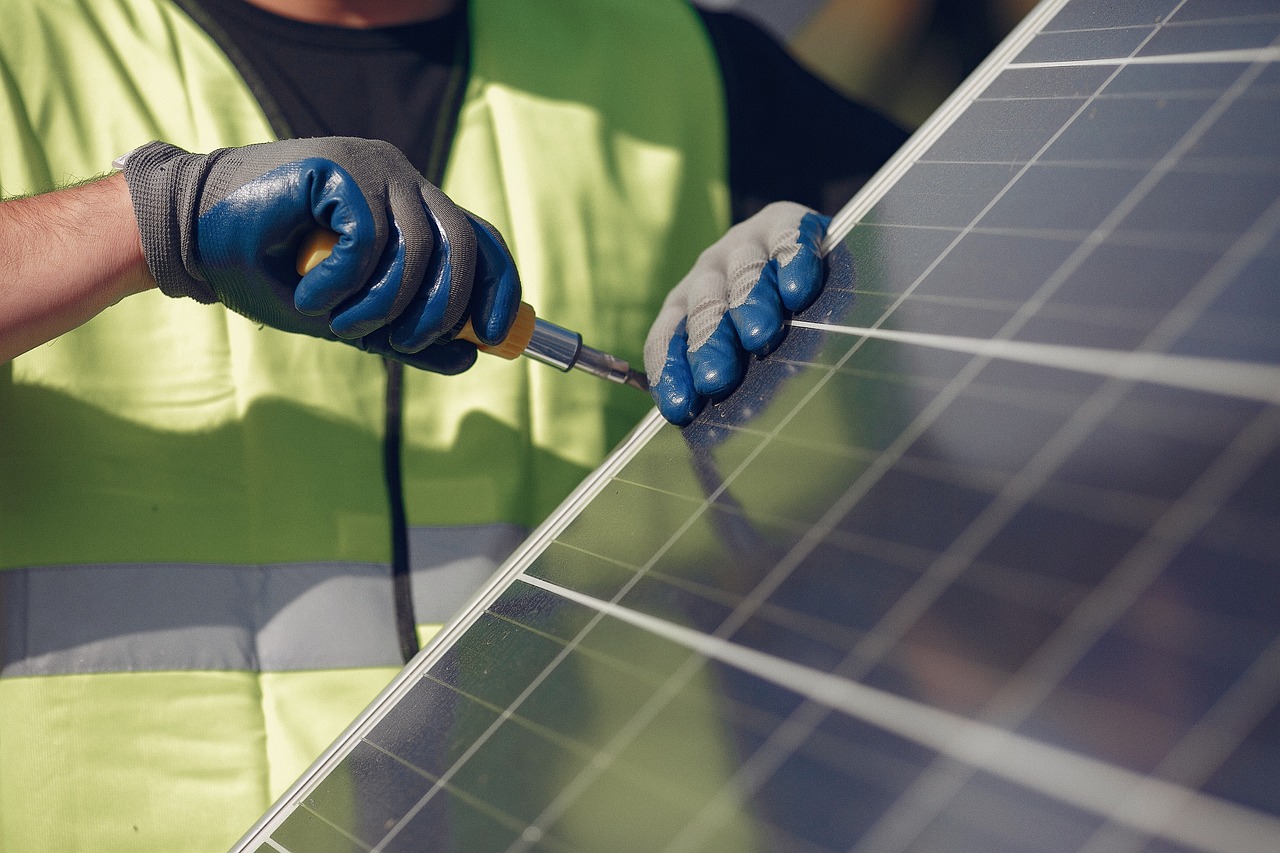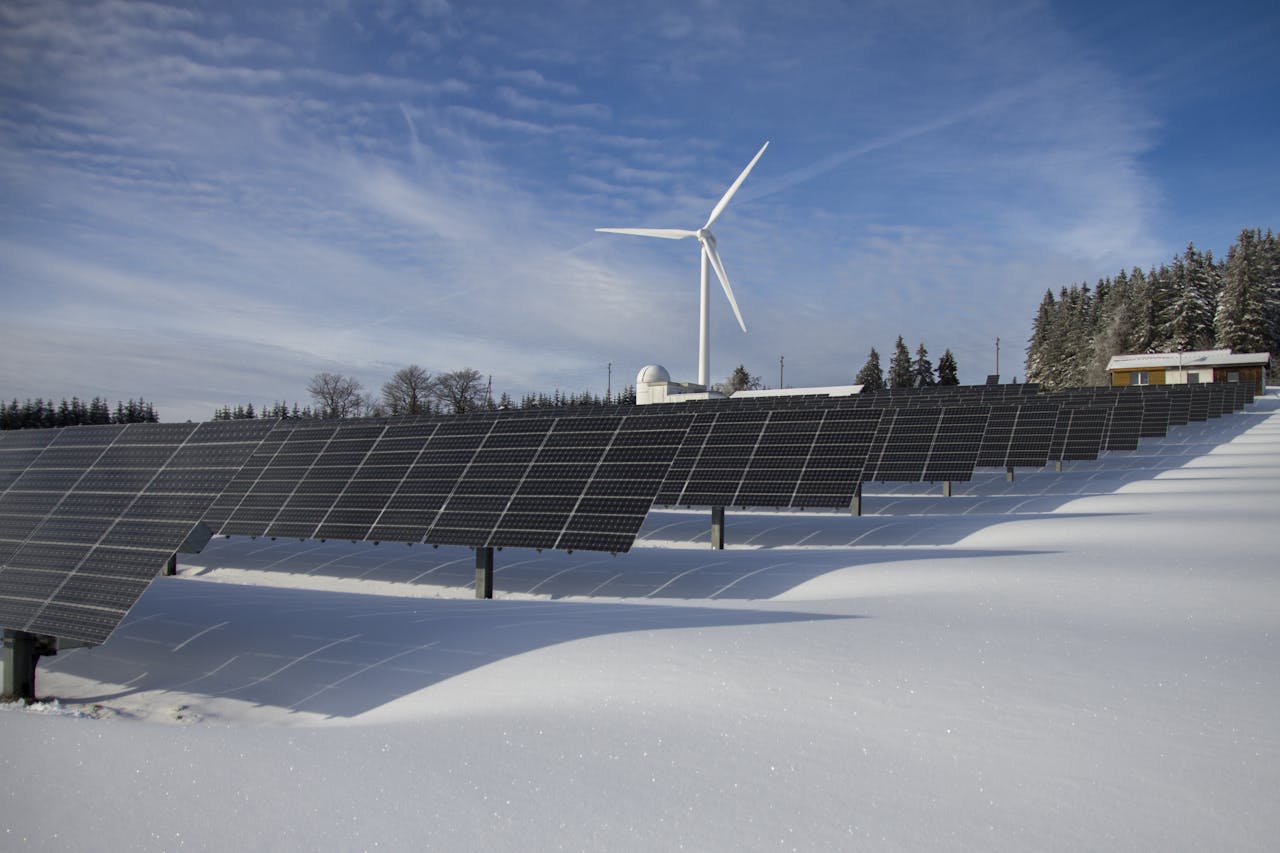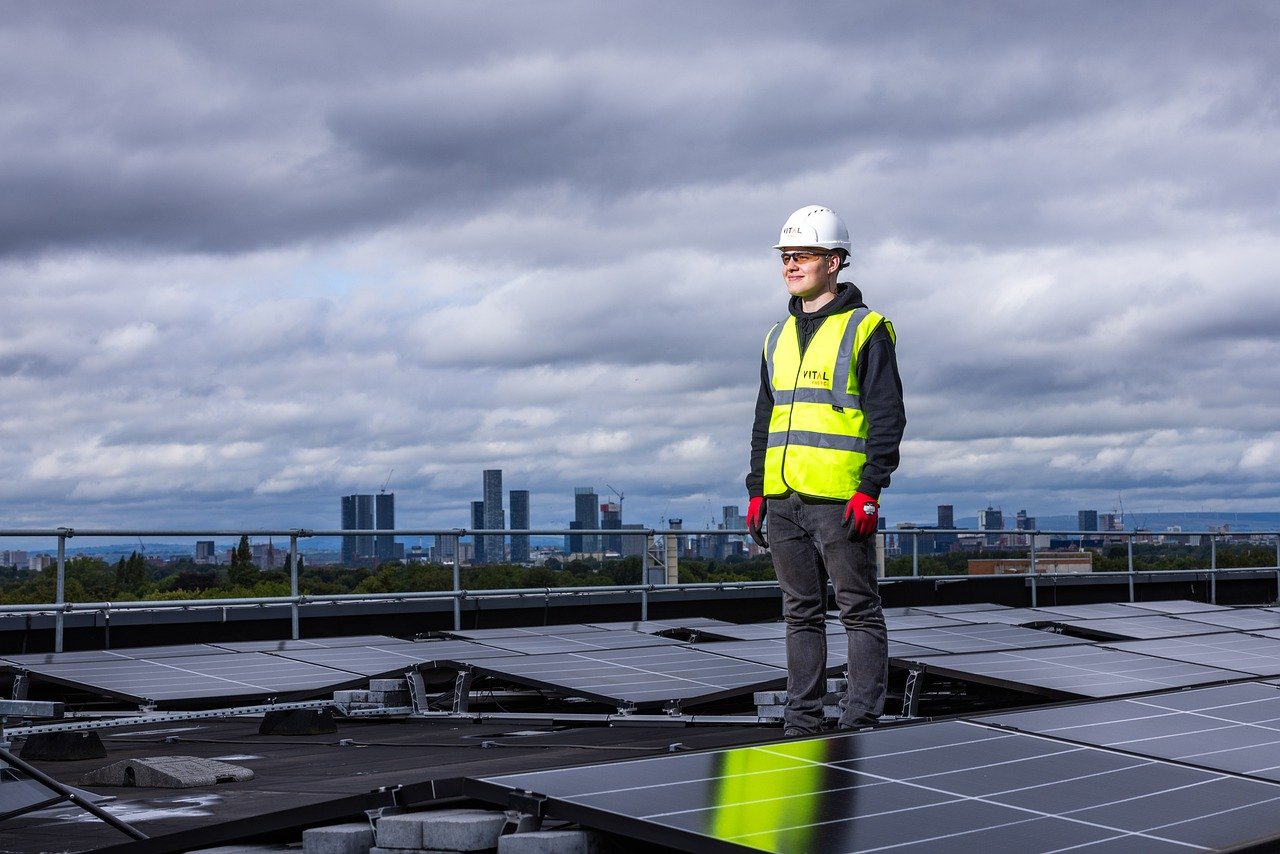Solar Panels
Solar Panels
Just like Prometheus brought fire to humanity, solar panels bring a new era of energy to the UK. You’re likely aware that the UK’s push for 70GW of solar capacity by 2035 is ambitious, but what does it mean for you?
From installation to maintenance, there’s a lot to unpack about how these panels can reduce your carbon footprint and cut electricity costs. Imagine the possibilities of energy independence and even earning through the Smart Export Guarantee. So, what are the key considerations before jumping into the solar revolution?
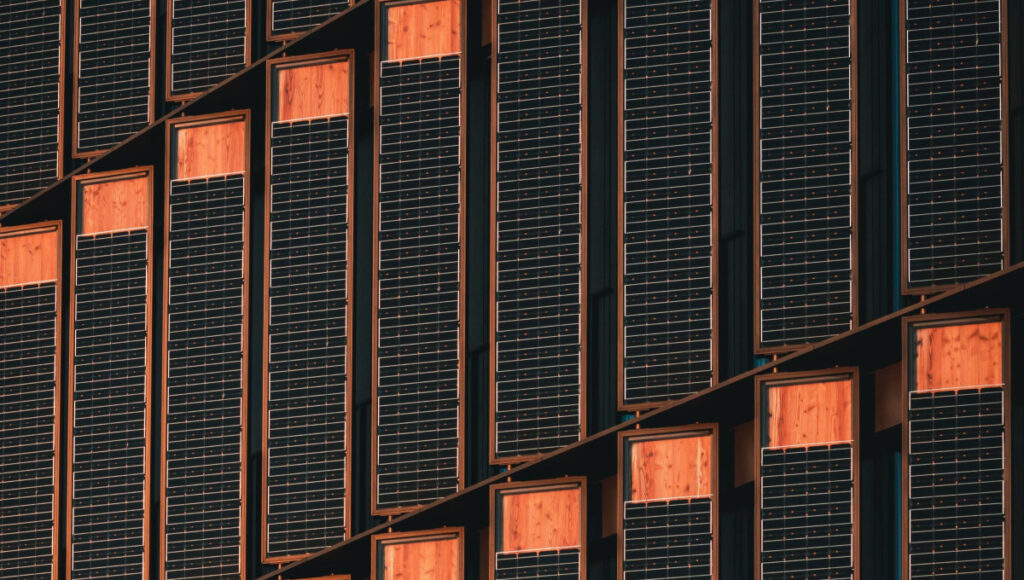
Solar Panel Basics
Solar technology advancements
Solar technology advancements have made it possible for a typical UK solar panel system to effectively operate with around 10-20m² of roof space for a 3.5kWp system. This means that many homes can now harness solar power without requiring extensive modifications.
Beyond just generating electricity, modern energy storage solutions allow you to store excess power generated during sunny periods for use during the night or on cloudy days, maximising efficiency and reliability.Implementing solar panels not only helps you save on energy costs but also greatly reduces carbon emissions—by about one tonne annually.
Solar Panels
Solar Panel Installation
Solar Panel Maintenance
Commercial solar panels
Solar Battery Storage
Installation Considerations
Efficient Inverter Placement: Keep It Cool and Shaded
It’s also important to carefully choose the placement of your inverter, ideally in a cool, shaded spot to maintain efficiency.
MCS-certified installer
Roof Suitability Assessment
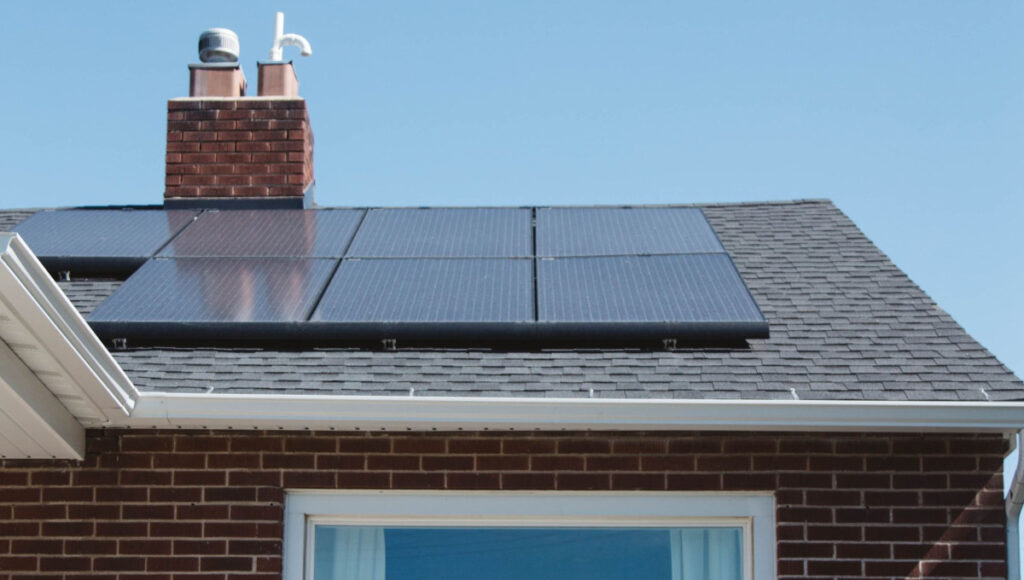
Evaluating your roof’s suitability is an essential step before installing solar panels. To serve others effectively, you must first verify that your roof can maximise solar energy capture.
Start by considering your roof orientation. Ideally, your roof should face south for peak performance, but east or west orientations can also be suitable. The key is to conduct a thorough shading analysis. Check for any potential obstructions like nearby trees or buildings that could cast shadows on your panels and reduce their efficiency.
Next, measure your available roof space. A typical 3.5kWp solar panel system needs about 10-20m² to function effectively. Confirm your roof has enough space to accommodate this.
Also, consider the pitch of your roof. A pitch between 20 and 50 degrees is ideal for capturing the most solar energy. North-facing roofs, however, tend to generate considerably less electricity and mightn’t be worth the investment.
Lastly, most standard installations won’t need planning permission unless your property is listed or in a heritage site.
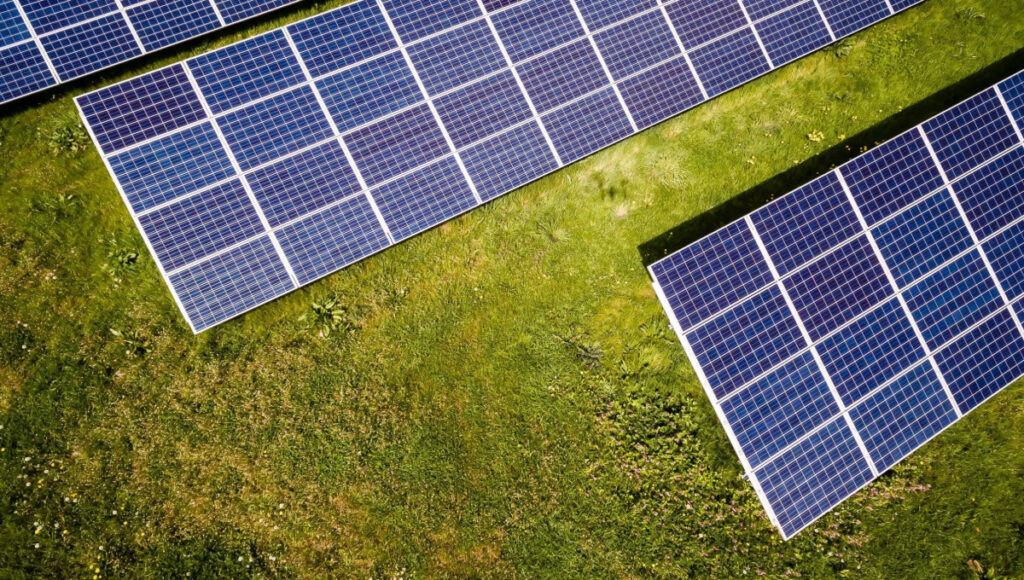
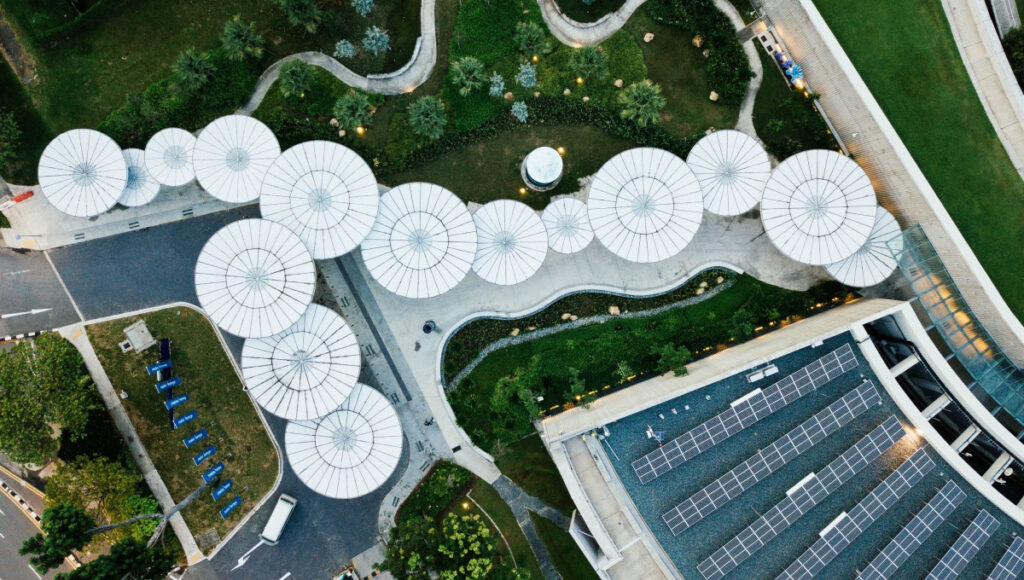
Inverter Placement Tips
After evaluating your roof’s suitability for solar panels, it’s important to contemplate the placement of the inverter for ideal system performance. By positioning the inverter close to the solar panels, you minimise energy loss during the conversion from DC to AC electricity, enhancing inverter efficiency.
Choose a cool, shaded, and well-ventilated area for installation. High temperatures can greatly reduce the inverter’s performance, so avoid direct sunlight exposure.
Consider the orientation and mounting to prevent moisture and dust from affecting the functionality over time. It’s not just about finding a spot but guaranteeing installation safety and longevity.
Avoid areas where the inverter might be shaded by nearby structures. Consistent shading can affect the inverter’s efficiency, leading to suboptimal system performance.
Accessibility is also key. Make certain the inverter is easy to reach for maintenance and monitoring. Regular checks and troubleshooting will be more manageable if the inverter is in a convenient location.
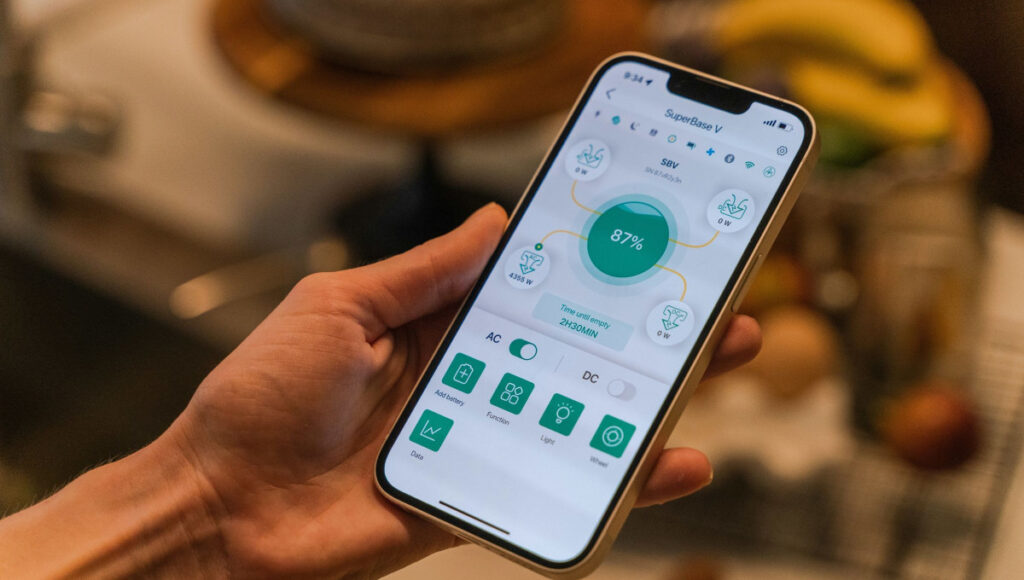
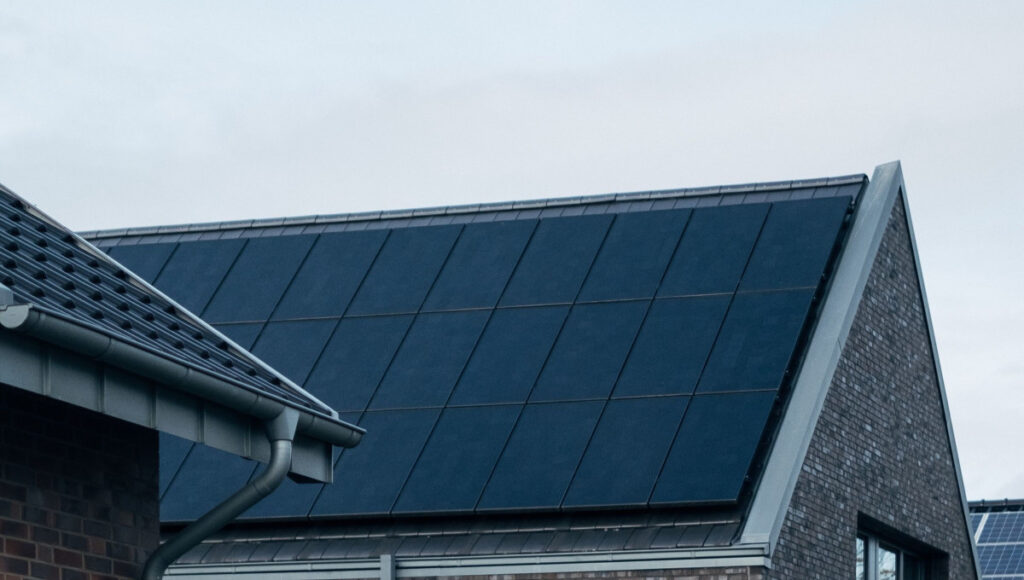
Benefits and Costs
When you invest in a 3.5kWp solar panel system costing around £7,000, you can greatly cut your electricity bills and reduce your carbon footprint by about one tonne each year.
Additionally, through the Smart Export Guarantee (SEG) scheme, you can earn up to 40p per kWh by exporting surplus energy back to the grid.
Not only can solar panels boost your home’s value, but combining them with battery storage can save you up to £713 annually on energy costs.
Cost Savings Potential
nstalling solar panels at your home in the UK offers substantial cost savings potential. By investing in a typical 3.5kWp solar panel system, you can save around £713 annually on electricity bills. This significant reduction in energy costs over time makes solar panels a wise financial decision.
One of the key financial incentives available is the Smart Export Guarantee (SEG), allowing you to earn money by selling surplus electricity back to the grid at rates up to 40p per kWh.
The initial installation cost for solar panels averages about £7,000, but this investment can be recouped through ongoing savings and additional income from the SEG. Additionally, generating your own electricity means you’re less dependent on grid energy, offering you long-term financial savings and energy independence.
Beyond monthly savings, solar panels can increase your property’s value. Studies show that homes with solar installations often sell for more than those without, providing a further financial benefit.
Environmental Impact Benefits
Solar panels, in addition to providing financial savings, offer substantial environmental benefits. By installing solar panels, you can greatly reduce your carbon footprint. An average household can save around one tonne of carbon emissions annually, making a meaningful contribution to combating climate change. This reduction in greenhouse gas emissions is essential for creating a sustainable future for upcoming generations.
Utilising solar energy taps into renewable resources, which helps lower our dependence on fossil fuels. Even on cloudy days, solar panels can generate electricity efficiently, ensuring a consistent energy supply while promoting the use of clean energy. This not only lessens environmental degradation but also moves us closer to a world powered by renewable resources.
Moreover, generating surplus electricity through solar panels and selling it back to the grid can provide you with additional income. This practice not only helps offset the initial investment costs but also supports the broader shift to renewable energy systems.

8 Jinko Panels, 3.6Kw GivEnergy Inverter
5.2Kw GivEnergy Battery System from £6997

12 Jinko Panels, 5Kw GivEnergy Inverter
9.5Kw GivEnergy Battery System from £8997
Exclusive Bundle Offer – Grab Yours Now for Unbeatable Value!

8 Jinko Panels, 3.6Kw GivEnergy Inverter
For some extra context as to what a solar package can include, if you have a smaller home with medium energy use, you will be looking at a starting price of £6997. A solar panel system of this size includes;
- 8x Jinko Panels
- 1x 3.6Kw GivEnergy Inverter
- 1x 5.2Kw GivEnergy Battery System

12 Jinko Panels, 5Kw GivEnergy Inverter
Alternatively, if you have a larger home with more substantial energy use, the starting price will be closer to £8997 and this more powerful system will include;
- 12x Jinko Panels
- 1x 5Kw GivEnergy Inverter
- 1x 9.5Kw GivEnergy Battery System
Property Value Increase
Boosting your property’s value is one of the compelling benefits of adding solar panels to your home. Homeowners like you can see an increase of about 4% to 5% in property value, making your home stand out in current market trends. Potential buyers are increasingly prioritising energy-efficient and sustainable features, which means your solar PV system can make your property more attractive.
By installing a 12-panel solar system, you could save around £713 a year on electricity bills. This significant saving adds to the property’s overall appeal, aligning with modern buyer preferences. Additionally, with the Smart Export Guarantee (SEG), you can earn up to 40p per kWh for excess electricity exported to the grid. This not only enhances your home’s financial attractiveness but also provides an additional income stream.
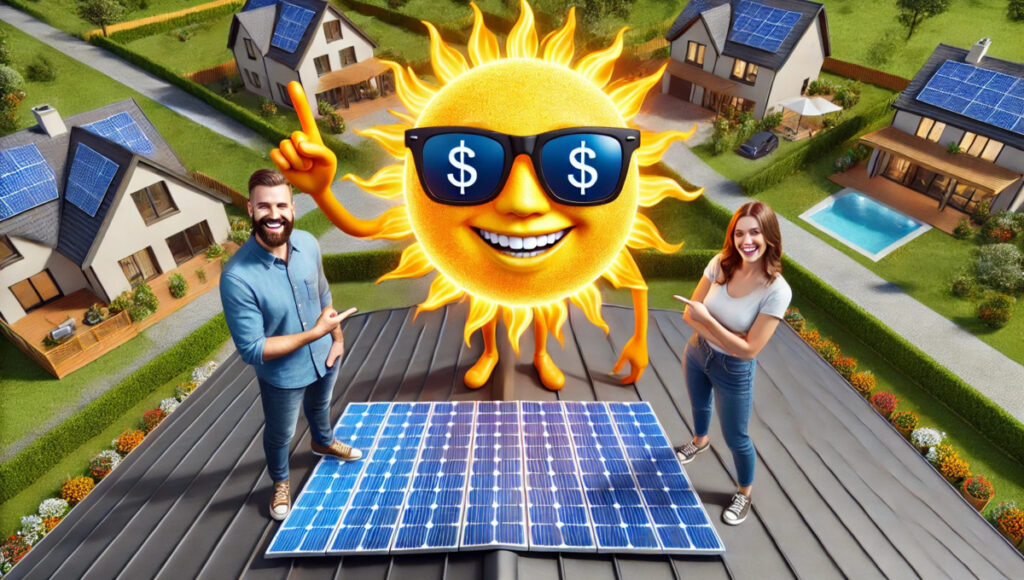
| Feature | Benefit | Financial Impact |
|---|---|---|
| Property Value Increase | 4% to 5% higher property value | £7,000 installation cost recouped |
| Annual Savings | £713 saved on electricity bills | Increased appeal |
| Smart Export Guarantee | Up to 40p per kWh for excess electricity | Additional income |
Homes equipped with solar panels often sell faster, reflecting a growing market trend towards eco-friendly living. This investment not only serves the environment but also contributes to your property’s marketability and value.


Optimising Usage
To get the most out of your solar panels, it’s vital to focus on enhancing their usage. Achieving energy independence requires a thorough consumption analysis. Start by combining your solar panels with battery storage. This will increase your self-sufficiency and allow you to use excess energy generated during peak sunlight hours, ensuring maximum energy use throughout the day.
Time-of-use tariffs can further enhance efficiency. By charging your batteries during off-peak hours, you’ll reduce costs and maximise the benefits of your solar energy.
Another key strategy is employing PV diverters, which redirect surplus solar energy to heat water. This not only improves the efficiency of your solar system but also lessens your reliance on traditional energy sources.
Regularly monitoring your energy production and consumption patterns is essential. It provides insights to adjust your habits, allowing you to better match your energy use with peak generation times.
Maintenance Tips
Maintaining your solar panels is straightforward and typically requires minimal effort.
You’ll only need to perform occasional panel cleaning to remove dirt or debris that could obstruct sunlight. A gentle rinse with water usually does the trick—no fancy equipment needed.
Twice a year, make it a point to conduct a thorough damage inspection, especially after severe weather events.
Look for cracks, scratches, or any signs of wear. Addressing these issues promptly guarantees your panels remain efficient and continue serving your energy needs.
Don’t forget to keep nearby trees trimmed. Overgrown branches can cast shadows on your panels, reducing their efficiency.
By maintaining clear access to sunlight, you’ll maximise your energy production, benefiting both you and those you serve.Monitoring the performance of your inverters is also essential.
These devices, which convert DC electricity to AC, typically need replacement around every 12 years. Regular checks will help you notice any drop in efficiency early on.
With a lifespan of 25 years or more, your solar panels are a long-term investment.
Regular inspections and maintenance will guarantee they perform at their best, allowing you to continue making a positive impact on the environment and your community.
Solar Capacity Growth
The UK is stepping up its game in renewable energy by setting its sights on achieving a staggering 70GW of solar capacity by 2035. This ambitious target demonstrates the nation’s commitment to enhancing renewable energy generation and reducing carbon emissions.
With over 1.2 million rooftops already equipped with solar technology, you’re seeing a significant trend toward adopting solar solutions.
Policy Power: Fueling the Solar Boom
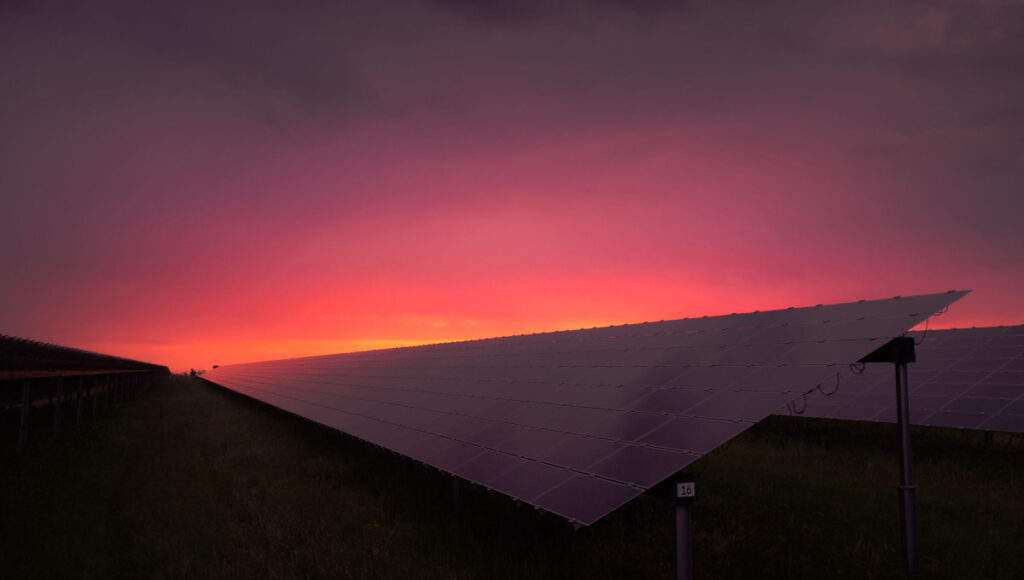
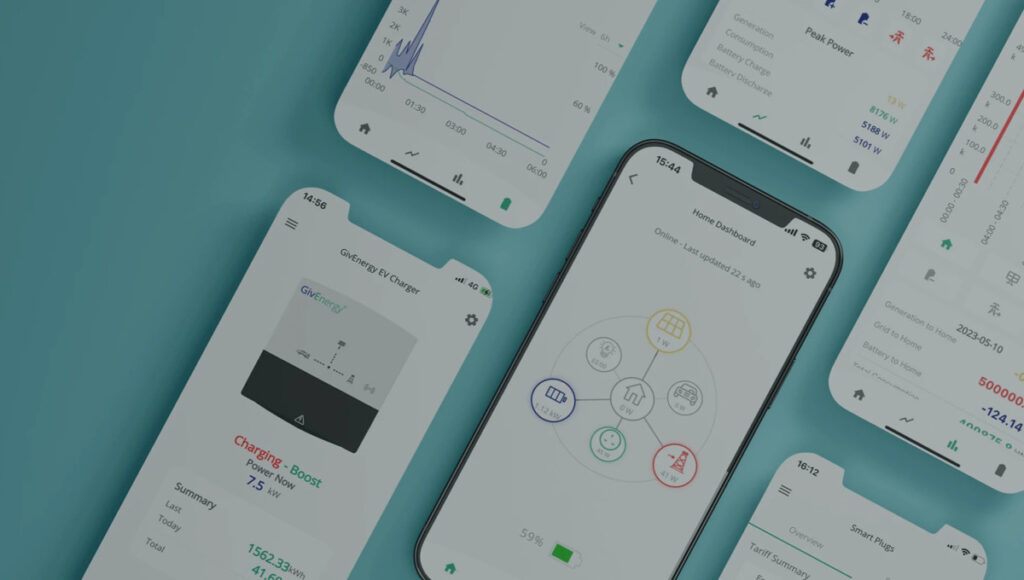
Key drivers behind this growth include:
- Ongoing research: Continual advancements are making solar technology more efficient and affordable.
- Policy development: Government policies are vital for creating a supportive environment for solar energy.
- Integration with smart technologies: Combining solar with energy storage, electric vehicles, and smart grids maximizes efficiency.
- Market trends: Increasing demand for renewable energy is pushing the market forward.
- Partnerships: Collaboration among companies accelerates innovation and deployment.
Solar Rooftops and Farms
Solar Panels
Increasingly, solar rooftops and farms are transforming the UK’s energy landscape, making renewable energy more accessible and sustainable. With over 1.2 million rooftops now equipped with solar technology, you’re likely familiar with the growing trend.
Solar rooftops aren’t just for homes; more than 200,000 non-residential buildings also benefit from these installations, showcasing their versatility.
You’ve probably noticed the push towards solar farms, too. The UK has over 24 gigawatts of ground-mounted solar projects in the planning stages. These farms don’t just generate clean energy; they’re managed to promote biodiversity, supporting local wildlife with pollinator-friendly initiatives. This approach means you’re contributing to environmental health on multiple fronts.
Community engagement is key in this shift. Solar rooftops and farms enhance local energy generation, boosting community resilience and sustainability.
UK Solar Market: Latest Developments and Trend
Top Solar Panels for High Efficiency
3 Best Solar Panels for High Efficiency
Boosting Solar Panel Efficiency Expert Tips
What Are the Most Efficient Solar Panels?
5 Best Affordable Solar Panel Options for Homes
Best Solar Panels for Business Installations
Solar Panels FAQs
Even with solar panels, you might still pay for electricity in the UK. Think of it as a hero’s journey toward solar panel savings and energy independence, but remember, you might not achieve complete freedom without extra storage.

